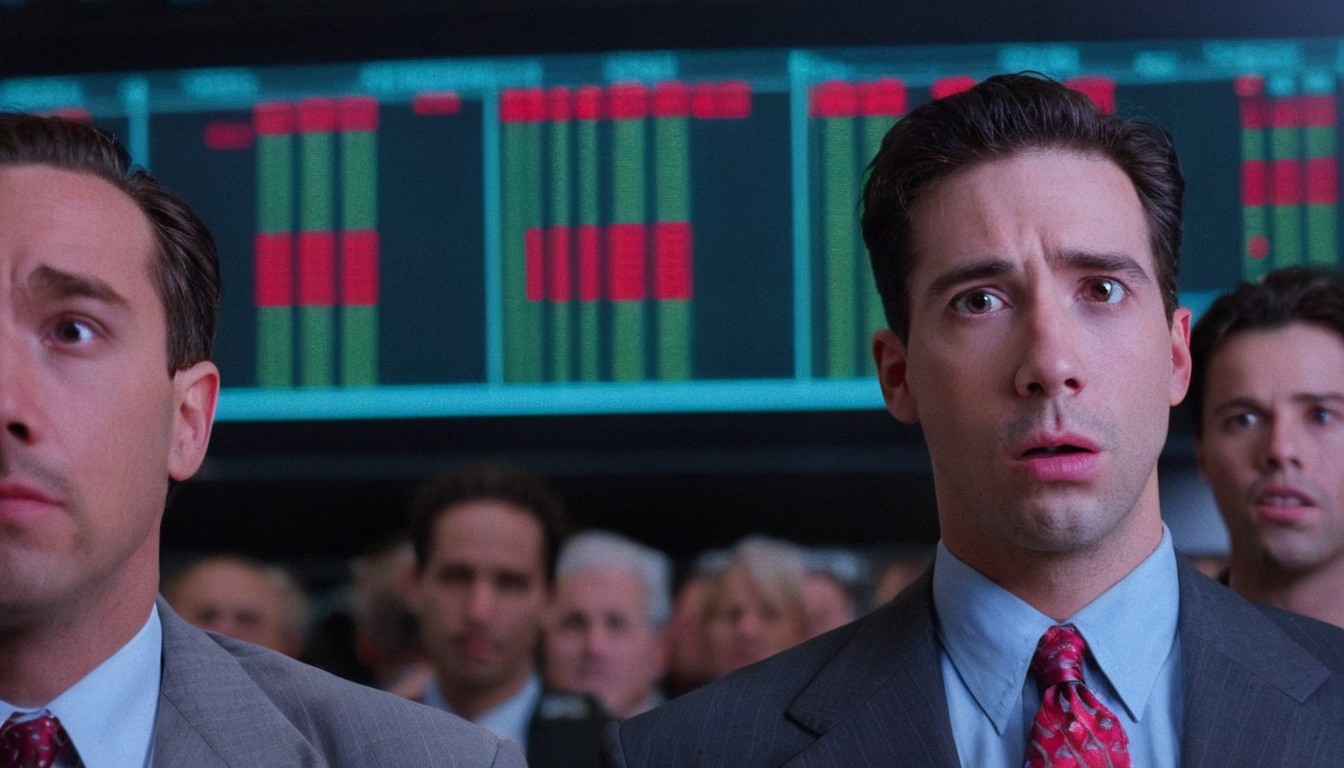Title: Unveiling the Intrigue of Stock Market Movies: From Greed to Glory
In the realm of cinema, few subjects hold as much allure and fascination as the world of the stock market. Over the years, filmmakers have expertly crafted narratives that delve into the highs and lows of financial wheeling and dealing, capturing the imaginations of audiences worldwide. These stock market movies not only entertain but also provide a window into the complex dynamics of finance and human nature. Let’s take a closer look at this captivating genre, exploring its themes, impact, and enduring popularity.
The Drama of Financial Ambition
At the heart of many stock market movies lies a tale of ambition, where characters are driven by a relentless pursuit of wealth and success. Films like “Wall Street” and its sequel “Wall Street: Money Never Sleeps” epitomize this genre, with protagonists like Gordon Gekko embodying the ruthless pursuit of fortune at any cost. Through their compelling narratives, these movies offer audiences a glimpse into the high-stakes world of finance, where every decision carries consequences.
Wrestling with Moral Dilemmas
Beneath the surface glamour, stock market movies often grapple with ethical dilemmas and moral ambiguity. Take, for example, “The Wolf of Wall Street,” which chronicles the rise and fall of Jordan Belfort, a charismatic yet morally bankrupt stockbroker. The film forces viewers to confront uncomfortable truths about the lengths to which some will go in pursuit of wealth, shining a light on the darker side of the financial industry.
Educational Insights into Finance
Beyond their entertainment value, stock market movies also serve as valuable educational tools, offering insights into market dynamics and investment strategies. “The Big Short” stands out as a prime example, providing a gripping account of the 2008 financial crisis and explaining complex financial concepts in an accessible manner. Through its portrayal of real-life events and characters, the film helps demystify the inner workings of the financial world, empowering viewers to better understand the forces that shape our economy.
Cultural Influence and Lasting Legacy
The impact of stock market movies extends far beyond the confines of the cinema, permeating popular culture and shaping societal perceptions of finance and success. From memorable quotes like “Greed is good” to iconic scenes of frenzied trading floors, these films have become ingrained in our collective consciousness, influencing attitudes towards money and ambition. Moreover, they have inspired a new generation of investors, sparking an interest in the workings of the stock market and the opportunities it presents.
The Allure of Financial Drama
Stock market movies often serve as a thrilling exploration of the human psyche in the face of financial gain and loss. Characters are portrayed navigating the tumultuous waters of the stock market, making high-stakes decisions that can have far-reaching consequences. Whether it’s the seductive allure of wealth or the devastating fallout of financial ruin, these films tap into universal themes that resonate with viewers on a visceral level.
Ethical Quandaries and Moral Complexity
One of the most compelling aspects of stock market movies is their exploration of ethical dilemmas and moral ambiguity. While some characters may start with noble intentions, the allure of wealth and power can lead them down a slippery slope of corruption and deceit. “Margin Call” is a prime example, as it follows the moral dilemmas faced by investment bankers during the 2008 financial crisis, forcing them to confront the ethical implications of their actions.
Real-Life Inspiration and Educational Value
Many stock market movies are inspired by true events, offering audiences a glimpse into the real-life drama that unfolds on Wall Street and beyond. Films like “The Social Network” and “Boiler Room” draw inspiration from actual events and personalities, providing a captivating blend of entertainment and education. By weaving together fact and fiction, these movies offer valuable insights into the inner workings of the financial world and the individuals who shape it.
Cultural Impact and Societal Reflection
Beyond their entertainment value, stock market movies often serve as a mirror reflecting the values and concerns of society at large. Whether it’s the excesses of the 1980s depicted in “Wall Street” or the reckoning of the 2008 financial crisis portrayed in “The Big Short,” these films offer a commentary on the role of money and power in contemporary culture. Moreover, they spark conversations about the ethical responsibilities of those in positions of financial influence and the impact of their decisions on society as a whole.
